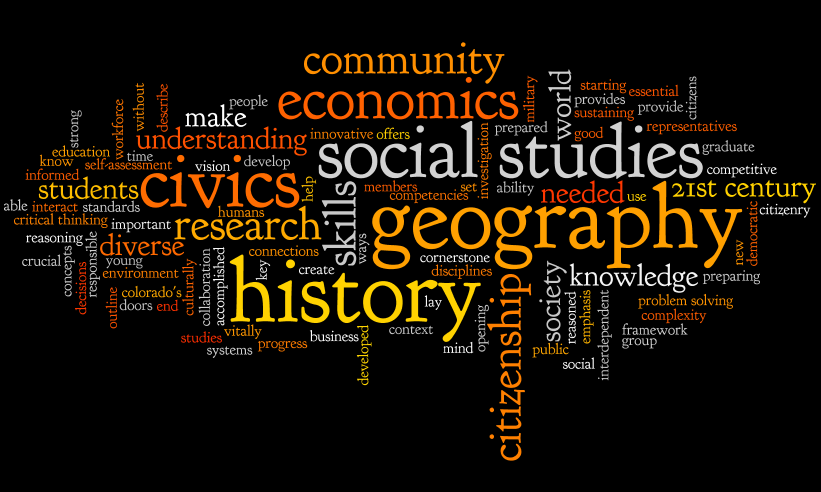As we wrote earlier in this interview with Anna Yang, librarians play a critical role in teaching information literacy and other foundational skills to students in the health sciences. It’s no secret that, across all disciplines, library instruction can have a positive impact on everything from retention to GPA-levels to graduation rates. Clinical professions’ reliance on strong research skills, however, creates a unique need for library support in this quickly growing field.
Instruction Focus: Research Skills in the Health Sciences
Information Literacy, Library Instruction, InfoLit – Health Science
Teaching Research Questions and Background Research with Credo, Part II
by Beth Black and Raymond Pun
Last week Beth and Ray offered activities and suggestions for teaching students about research questions criteria and the role of background information when starting their research projects. This week the two take a look at writing and revising research questions using Credo Online Reference Service.
Integrating Critical Visual Literacy in Library Instruction
By Stacy R. Williams and Raymond Pun
Visual literacy is an important skill to make sense of images and multimedia content. In this post we’ll build off our previous discussion of teaching visual literacy to delve deeper into how we can engage students to think critically in this area. From social media to digital collections in museums, librarian Stacy R. Williams shares her favorite tools when teaching critical visual literacy concepts in research workshops at the University of Southern California (USC).
Teaching Research Questions and Background Research with Credo, Part I
By Beth Black and Raymond Pun
Research question formation and background research are important parts of the process that set students up for success in seeing their assignments to completion. Credo Online Reference Service is a good tool for giving students practice with these fundamental steps during library instruction sessions. This 2-part series will describe an FYE workshop Beth designed and offered at Ohio State University for honors students. It can be easily adapted to class visits to courses in which students will have a research assignment. The workshop is part of the common read program, and is titled “What’s in a Question? Research Questions and [common read title]”. Make sure students have access to computers or tablets so they can use Credo during the session.
Supporting Information Literacy in African American Studies
By A.J. Muhammad and Raymond Pun
Today there are opportunities to integrate information literacy into interdisciplinary fields such as Ethnic Studies including African American Studies. According to the Encyclopedia of the World of Sociology, “African American Studies is an academic discipline that focuses on the cultural, political, economic, religious, and social development of black Americans. First established in American universities in the late 1960s, African American Studies Departments were, in part, the product of student protests and the social climate created by the Civil Rights movement and the Black Power movement.” In this interview, Librarian A.J. Muhammad shares his experiences incorporating research and information literacy skills into his work at The New York Public Library’s Schomburg Center For Research Black Culture.
By Jennifer Shimada and Raymond Pun
There has been a long practice in teaching information literacy in various areas of education studies such as P-12 focus, counseling, special education, curriculum studies, educational leadership and policy, and so forth. In addition, many graduate programs in education are offered remotely, where students and faculty are part of a distance learning community. How can librarians support graduate studies in education and distance services? In this interview, Librarian Jennifer Shimada shares some tips and resources from her role supporting online learning programs and instructional services at Relay Graduate School of Education.
Escape Rooms for the Academic Library: Tips and Tricks for Learning Engagement
A few weeks ago, I had the opportunity to visit KTH Royal Institute of Technology, a university located in Stockholm, Sweden. In this trip, I created a gamified IL workshop based on escape rooms. About 20 academic librarians came from all over Sweden to participate in this activity and discuss ways to expand the concept into their own practices. Here I’ll explain some tips and tricks for you to consider when creating escape rooms in your own instruction.
By Anna Yang and Raymond Pun
Today, health sciences education programs are growing rapidly across the United States. As a result, there are more opportunities to work as a health sciences librarian teaching and supporting information literacy in disciplines like nutrition, physical therapy, nursing, public health, and pharmacy. In this interview, librarian Anna Yang shares her experiences supporting information literacy in this expanding field.
First Year Experience, Library Instruction, InfoLit – Health Science
By Andrew Carlos and Raymond Pun
Memes are an inescapable part of today’s online culture. The Internet is filled with memes: images, videos, texts, or ideas created and virally shared by one person to another to critique or reinforce a specific culture. They can be satirical, ironic, or graphic, and may make references to popular culture like the Batman meme you see here. Memes can also help students make important connections during your library instruction.
By Melissa Cardenas-Dow and Raymond Pun
With a greater emphasis on data and numbers, the social sciences are becoming more interdisciplinary-based, with an increased focus on research methods and data collection plans. But what does that mean for instruction librarians supporting these research areas? The social sciences include fields like history, psychology, sociology, anthropology, ethnic studies, women’s studies, geography, political science, economics, and more. In this interview, social sciences librarian Melissa Cardenas-Dow shares her approach to teaching information literacy, and recommends selected sources to tap into the interdisciplinary nature of the social sciences.

/Images/doctor_computer.jpg)
/Images/mindmap-2123973_640.jpg)
/Images/vislit.png)
/Images/AfricanAmericanStudies.jpg)
/Images/ILeducation.jpg)

